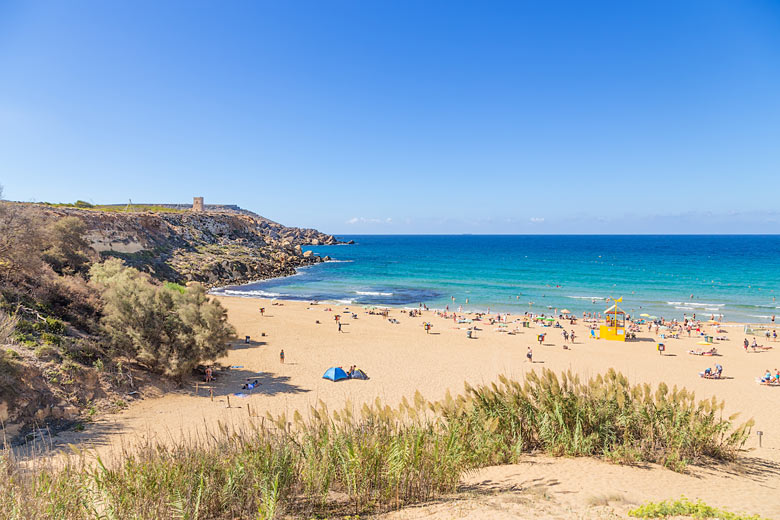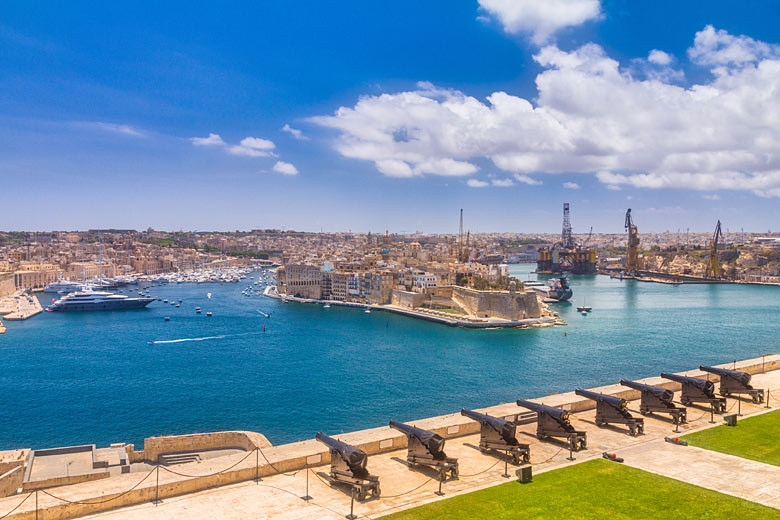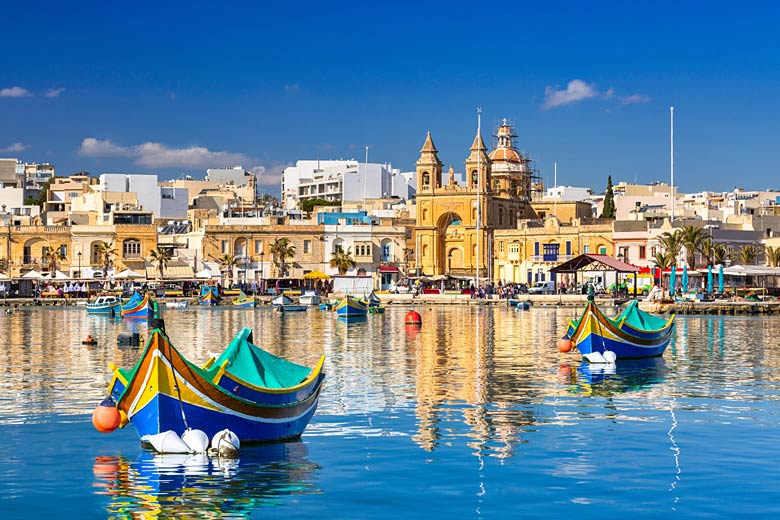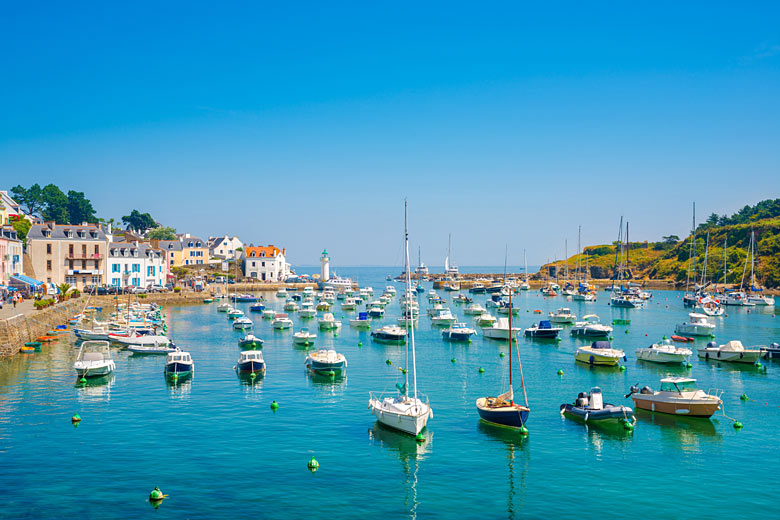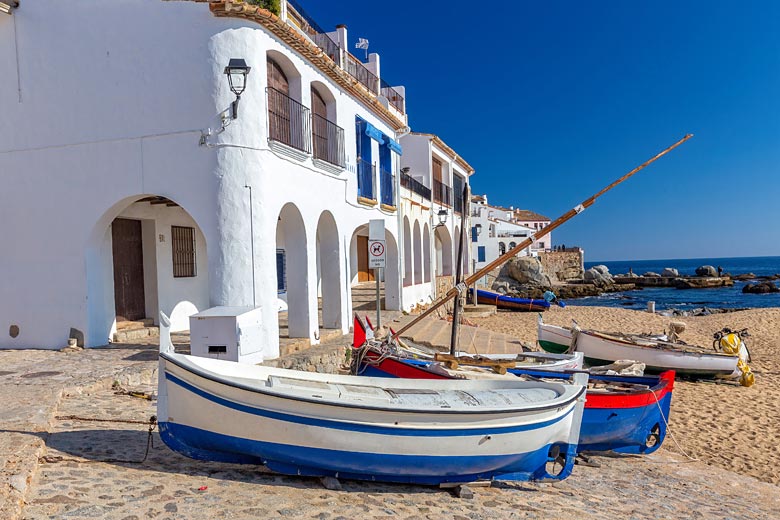- Book online with TUI & save up to 8% on holidays
- FREE child places available for select holidays
- Pay £0 deposits with direct debit & spread the cost
Malta weather by month
Check out Malta weather averages by month. Compare detailed monthly climate statistics including temperature, rainfall and sunshine figures.
| Jan | Feb | Mar | Apr | May | Jun | Jul | Aug | Sep | Oct | Nov | Dec | |
|---|---|---|---|---|---|---|---|---|---|---|---|---|
| Maximum daytime temperature °F |  59 59 |
 59 59 |
 61 61 |
 66 66 |
 73 73 |
 81 81 |
 86 86 |
 86 86 |
 82 82 |
 75 75 |
 68 68 |
 63 63 |
| Hours of sunshine (daily) | ||||||||||||
| Days with some rainfall |  13 13 |
 10 10 |
 9 9 |
 6 6 |
 3 3 |
 1 1 |
 0 0 |
 1 1 |
 4 4 |
 10 10 |
 10 10 |
 13 13 |
| Sea temperature °F |  61 61 |
 59 59 |
 59 59 |
 61 61 |
 64 64 |
 72 72 |
 77 77 |
 79 79 |
 79 79 |
 75 75 |
 70 70 |
 64 64 |
More about Malta
Malta by month
Jan Feb Mar Apr May Jun Jul Aug Sep Oct Nov Dec
Recommended for Malta
The climate guide for Malta (Valletta) shows long term monthly weather averages processed from data supplied by CRU (University of East Anglia), the Met Office & the Netherlands Meteorological Institute. Find out more about our data sources.
Top Malta destinations
Below are average maximum temperatures at popular countries, regions and places in Malta for next month - August. Select a destination to see the climate guide for all months of the year.
All Malta destinations
- Bugibba
- Comino
- Gharb
- Gozo
- Marfa
- Marsascala
- Mellieha Bay
- Paradise Bay
- Qawra
- Salina
- Sannat
- Sliema
- St Georges
- St Julians
- St Paul's Bay
- Valletta
- Xaghra
Metric (°C) | Imperial (°F)
Malta climate overview
Malta is a collection of small islands to the south of Sicily in the central Mediterranean. It has a rich cultural history that is reflected in the many Norman and Baroque churches, citadels and castles, both in the towns and perched on cliff-tops. It is a relatively densely populated country with an economy that is heavily dependent on tourism.
Malta is made up of three islands, Malta, Gozo, and Comino. Malta is by far the largest island and is mostly low-lying limestone. The interior is sparsely vegetated with some open shrubland and small pockets of mixed forest. The coastline is a mixture of sandy beaches and rocky shoreline with coves and bays, and some spectacular cliffs.
The smaller island of Gozo, to the north, is slightly hillier than the main island with the same rugged coastline.
The climate of Malta is typically Mediterranean with long summers that are dry and warm. In early and late summer hot sirocco winds can blow up off the Sahara desert bringing gales and dust that obscures visibility.
The sunniest time of year is July and August when days go by without a single cloud in the sky, however this is also the hottest time with high heat and humidity.
From October through to February scattered showers are likely with December being the month with the most rain. There are moderate amounts of cloud during this time, but daytime temperatures never fall below 10°C and frost never occurs. Even in winter there are usually 5 hours of sunshine on average each day.
The Central Mediterranean is one of the most active earthquake regions on earth and Malta has not escaped its share of devastating tremors. The last major 'quake was in 1693 when many historic buildings were seriously damaged or destroyed.
More about Malta
Compare Malta with the UK
Below the Malta chart shows average maximum daytime temperature for Malta (Valletta) and the UK (London).
Maximum daytime temperature (°F)
Metric (°C) | Imperial (°F)
Be inspired
Get your weekly fix of holiday inspiration from some of the world's best travel writers plus save on your next trip with the latest exclusive offers
We promise not to share your details
Related posts
Popular travel offers
Explore holidays in the sun for less
- Beach holidays
- Family holidays
- City breaks
- Summer holidays
- Winter sun holidays
- Holiday offers
- Top travel brands
- Airlines & flights
- Discount hotels
- Airport parking deals
- TUI
- Jet2holidays
- easyJet holidays
- Love Holidays
- January sales
Airport parking
- Manchester Airport
- Stansted Airport
- Bristol Airport
- Luton Airport
- Birmingham Airport
- Edinburgh Airport
- Gatwick Airport
- Glasgow Airport
- Newcastle Airport
Airport lounges
- Manchester Airport
- Birmingham Airport
- Bristol Airport
- Edinburgh Airport
- Glasgow Airport
- Heathrow Airport
- Newcastle Airport
- Stansted Airport
- Gatwick Airport



















 TUI deal finder
TUI deal finder